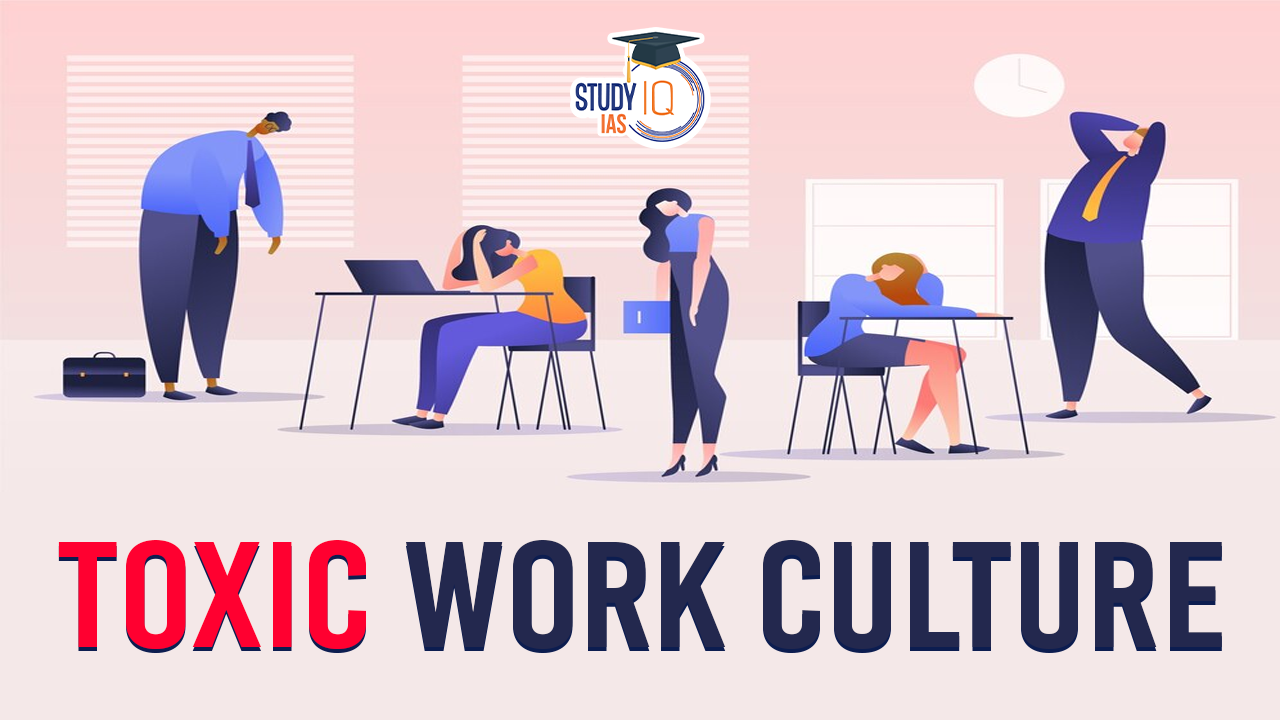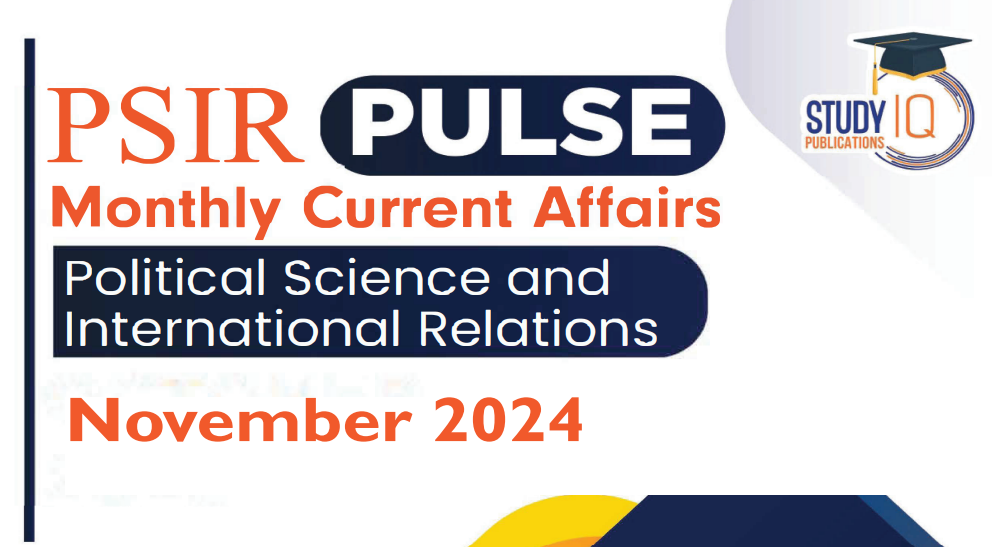Table of Contents
What is Meant by Toxic Work Culture?
- It refers to a harmful and unhealthy work environment where negative behaviours, practices, and attitudes are prevalent, affecting employees’ well-being, morale, and productivity.
- It is characterised by a lack of respect, poor communication, high stress, and unethical practices, leading to a demotivating atmosphere that can have serious implications for employees’ mental and physical health.
Key Characteristics of Toxic Work Culture
- High Levels of Stress and Burnout: Employees are often overworked, facing excessive workloads and unrealistic deadlines, leading to chronic stress and burnout.
- Poor Leadership and Management: Leadership is often marked by favouritism, micromanagement, lack of support, or abusive behaviours that undermine employees’ confidence and job satisfaction.
- Lack of Communication and Transparency: Poor communication, misinformation, and a lack of transparency from management contribute to confusion, distrust, and frustration among employees.
- Hostility and Conflict: A culture of blame, office politics, gossip, and conflict among team members creates a hostile work environment.
- Fear of Speaking Up: Employees feel intimidated or fear retaliation if they voice concerns, ask for help, or report unethical behaviour, leading to a culture of silence.
- Lack of Work-Life Balance: Employers often ignore the importance of personal time, leading to expectations of constant availability and disregard for employees’ work-life balance.
- Unfair Practices and Inequity: Unethical practices such as favouritism, discrimination, unequal pay, and credit misappropriation damage morale and contribute to a sense of injustice.
- Neglect of Employee Well-being: There is often a disregard for employees’ physical and mental health, with minimal support for stress management or wellness initiatives.
Impact of Toxic Work Culture
- Decreased Productivity: High stress and low morale reduce overall productivity and performance.
- High Turnover Rates: Employees are more likely to leave a toxic workplace, leading to higher turnover and recruitment costs.
- Mental and Physical Health Issues: Prolonged exposure to a toxic environment can result in anxiety, depression, sleep disorders, and other health problems.
- Negative Reputation: Companies with a toxic culture often face reputational damage, making it difficult to attract and retain top talent.
| Key Findings from WHO Study on Long Working Hours |
|
Signs of a Toxic Work Culture
- Absence of Core Values: A lack of clearly defined core values can lead to confusion and unwanted subcultures within the organisation.
- Frequent Gossip and Competition: High levels of gossip and unhealthy competition among employees can create divisions and mistrust.
- Unfriendly Management Practices: Public criticism of employees or lack of recognition for their contributions can foster resentment and disengagement.
- High Absenteeism: Frequent tardiness or absences may indicate low morale and dissatisfaction among employees.
- Lack of Employee Development Opportunities: When organisations do not support employee growth through training or mentorship, it can lead to stagnation and frustration.
Ethical Concerns in the Workplace
- Workplace Stress and Mental Health: Inadequate management of excessive workloads, long hours, and stress can adversely impact employees’ physical and mental health, raising concerns about employers’ responsibility for their well-being.
- Toxic Work Culture: A work environment that normalises overwork, burnout, and discourages employees from voicing concerns about stress or exhaustion neglects the human aspect of work, making it ethically questionable.
- Lack of Empathy and Support: The absence of company representatives at an employee’s funeral signals a lack of empathy and emotional support, which are crucial in times of loss.
- Retaliation and Fear of Repercussions: Fear of retaliation or negative performance ratings deters employees from reporting work-related stress, highlighting an unethical power imbalance within the workplace.
- Unclear Expectations and Unrealistic Workloads: Setting unrealistic expectations without considering employee capacity or well-being violates ethical labor practices.
- Mental Health Stigma: The stigma associated with mental health issues in the workplace reflects a broader ethical failure to provide adequate support for employees’ mental well-being.
- Credit Misappropriation: Managers taking credit for their subordinates’ work, leading to unfair performance ratings, demonstrates a lack of integrity and fairness.
- Neglecting Employee Welfare Policies: The failure to genuinely implement employee welfare policies, despite the presence of wellness programs, shows a disconnect between corporate commitments and actual practices.
Critique of Corporate Culture
- Short-Termism in Corporations: CEOs prioritise quarterly performance over employee welfare, leading to a toxic work environment where employees are treated as mere resources.
- Clichés vs. Reality: There is a disconnect between popular corporate slogans (e.g., “Culture eats strategy for breakfast”) and actual practices that often disregard employee well-being.
- Callous Workforce Management: The current job market allows companies to neglect employee engagement due to an oversupply of labour.
- Ambitious Mindset: Many young professionals, particularly those with sought-after degrees like B.Tech, MBA, or Chartered Accountancy, may believe that nothing is more important than becoming a “winner” through relentless work and financial success
- Life Killing Work Culture: Modern corporate work environment, which can exploit individuals despite appearing glamorous with high salaries, office parties, and luxury vacations.
Recommendations for Employees
- Avoid Toxic Work Cultures: Employees should steer clear of companies that prioritise relentless work hours over work-life balance.
- Challenge Authority: Employees should question and challenge management decisions that compromise their well-being.
- Constructive Employee Activism: There should be a movement where employees voice their concerns regarding workplace conditions, emphasising that mere perks do not suffice for genuine engagement
- Distinguishing True Needs: Young professionals are encouraged to sharpen their intelligence and wisdom to distinguish true needs from market-induced artificial desires.
- This awareness empowers individuals to set boundaries, such as refusing excessive work hours.
- Reclaiming Personal Joy: There should be a procedure to reclaim time for personal joy and sanity, where young professionals can reclaim their lives from the demands of the corporate world.


 Pariksha pe Charcha 2025, Overview, Even...
Pariksha pe Charcha 2025, Overview, Even...
 National Policy on Framework on Agricult...
National Policy on Framework on Agricult...
 How Scientists used Scotch tape to Creat...
How Scientists used Scotch tape to Creat...




















